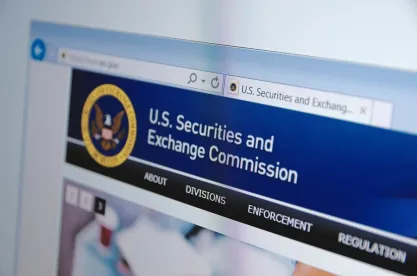Last week, the Commodity Futures Trading Commission (CFTC) and Department of Justice (DOJ) filed their most significant and aggressive actions against spoofers and the firms employing them for failing to supervise. The CFTC filed settled actions against each of the global firms for supervisory violations, amongst other charges, and the CFTC charged six individuals with alleged commodities fraud and spoofing schemes. In the parallel criminal actions, the DOJ announced criminal charges against eight individuals (the six charged by the CFTC plus two others). The CFTC’s and DOJ’s coordinated and complex investigative efforts and filings indicate increased aggressiveness by both in this area. Further, these efforts represent the greatest amount of cooperation ever between the CFTC and DOJ. As reported previously in this blog post, with the affirmation of the conviction of high-frequency trader Michael Coscia, we are likely witnessing a CFTC and a DOJ emboldened to investigate and prosecute spoofing and related supervisory violations.
In terms of learning points from these actions, the CFTC continues to investigate and charge firms for failing to supervise this type of manipulative trading. This now appears to be a standard part of the CFTC’s “playbook” for these matters. Each of the firms settled to supervisory violations and as part of the CFTC’s remedies they further agreed to: continue to maintain surveillance systems to detect spoofing; ensure personnel “promptly” review reports generated by such systems and follow‑up as necessary if potential manipulative trading is identified; and maintain training programs regarding spoofing, manipulation, and attempted manipulation. Further, as part of its ongoing efforts to tout its self-reporting and cooperation programs, the CFTC acknowledged each firm’s cooperation during the investigations, and that one of the firms self-reported in response to a firm-initiated internal investigation. That said, it is difficult to interpret the benefits of this cooperation and self-reporting because the CFTC nevertheless levied significant penalties of $30 million, $15 million, and $1.6 million against the firms.
Another important point to highlight is that one of the individuals charged was a service provider who allegedly aided and abetted traders by designing software used to spoof and engage in a manipulative and deceptive scheme. According to the CFTC, this individual and his company aided and abetted the spoofing by designing a process that automatically and continuously modified the trader’s spoofing orders by one lot to move them to the back of relevant order queues (to minimize their chance of being executed) and cancelled all spoofing orders at one price level as soon as any portion of an order was executed. It appears from the parallel criminal complaint filed against this individual that the trader he is alleged to have assisted was likely Navinder Sarao, who previously pled guilty to criminal charges for engaging in manipulative conduct through spoofing-type activity involving E-mini S&P futures contracts traded on the Chicago Mercantile Exchange between April 2010 and April 2015, including illicit trading that contributed to the May 6, 2010 “Flash Crash.” He also settled a CFTC enforcement action related to the same conduct. As part of his plea, Mr. Sarao entered into a cooperation agreement with the government (previously reported) and it appears as though these actions may be related to Mr. Sarao’s cooperation.
The DOJ’s announcement of the latest round of charges also signals a heightened focus on spoofing cases by “Main Justice” in Washington, and the Criminal Fraud Section in particular. The announcement by Acting Assistant Attorney General John P. Cronan commended no fewer than eight Fraud Section prosecutors by name (as well as a prosecutor from Connecticut). In doing so, DOJ signaled its willingness to invest substantial resources in criminal manipulative trading prosecutions that will complement and further reinforce the efforts of the CFTC and the U.S. Attorneys’ Offices in key jurisdictions, including the Northern District of Illinois (which prosecuted Mr. Coscia).
In conclusion, with the CFTC’s and DOJ’s recent spoofing and supervisory cases, they have sent several important messages. First, and least surprising, this area will remain a top priority for the CFTC and we will continue to see increased collaboration with the DOJ. Additionally, with these filings and the supervisory charges filed against other firms over the past year, it appears to now be a matter of routine that the CFTC will be pursuing any supervisory violations related to the underlying spoofing violations. A new takeaway is that the CFTC and DOJ will be investigating other entities, such as vendors, who provide services that help facilitate this violative conduct and investigating them for aiding and abetting. Finally, it is likely that the Fraud Section will take an increasingly prominent role in the DOJ’s anti-spoofing prosecutions, and will continue to develop expertise in this expanding area of criminal enforcement.



 />i
/>i

